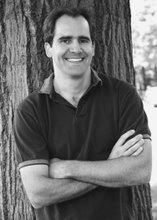This Week's Citation Classic
 Simberloff DS & Wilson E0. 1969. Experimental zoogeography of islands. The colonization of empty islands, Ecology 50:278-96.
Simberloff DS & Wilson E0. 1969. Experimental zoogeography of islands. The colonization of empty islands, Ecology 50:278-96.
This week's citation classic comes from Dan Simberloff and Ed Wilson, and in terms of scale, ranks of one of the most daunting ecological experiments every attempted. The pair was interested in the recolonization process following an extinction event. Specifically they wanted to test whether the number of species on an island existed in a dynamic equilibrium with present species going extinct being replaced by new immigrants.
The classic example of a major extinction event was the eruption of Krakatoa. When Krakatoa exploded in 1883, it exterminated every living organism on the island. When the first researchers reached the islands in May 1884, the only living thing they found was a spider in a crevice on the south side. However life quickly recolonized the island and today it supports a large ecosystem.
Krakatoa was a natural experiment. The question was, how to replicate Krakatoa on a controlled basis. Simberloff and Wilson hit upon the idea of fumigating entire mangrove islands by encasing the islands in a canopy of plastic sheeting and pumping in methyl bromide (which killed the bugs, but not the mangroves). Prior to and after fumigation, every single arthopod on the island was collected and identified. It was, needless to say, a massive endeavor.
Simberloff comments, "Even identifying the over 100 species that we found required us to enlist an army of systematists, and physical aspects of operating in the shallow, shark-infested waters of the Florida Keys put us one up on molecular biologists who always seemed engaged in momentous breakthroughs."
But it worked!
Simberloff and Wilson found that following defaunation, the number of species on islands recovered previous levels. What's more is that they showed substantial species composition changes over time indicating extinction and immigration.











there is a great recreation of this in the new film about e o wilson, "darwin's natural heir." Wilson revisits one of the islands, and his childlike glee at finding ant species on them is evident. One can only imagine how gleeful he was years ago when he first saw them recolonized.
ReplyDeleteI really wanted to find a photo of Ed and Dan gassing the island because I saw footage of it somewhere (probably National Geographic channel), but I couldn't find anything :(
ReplyDelete